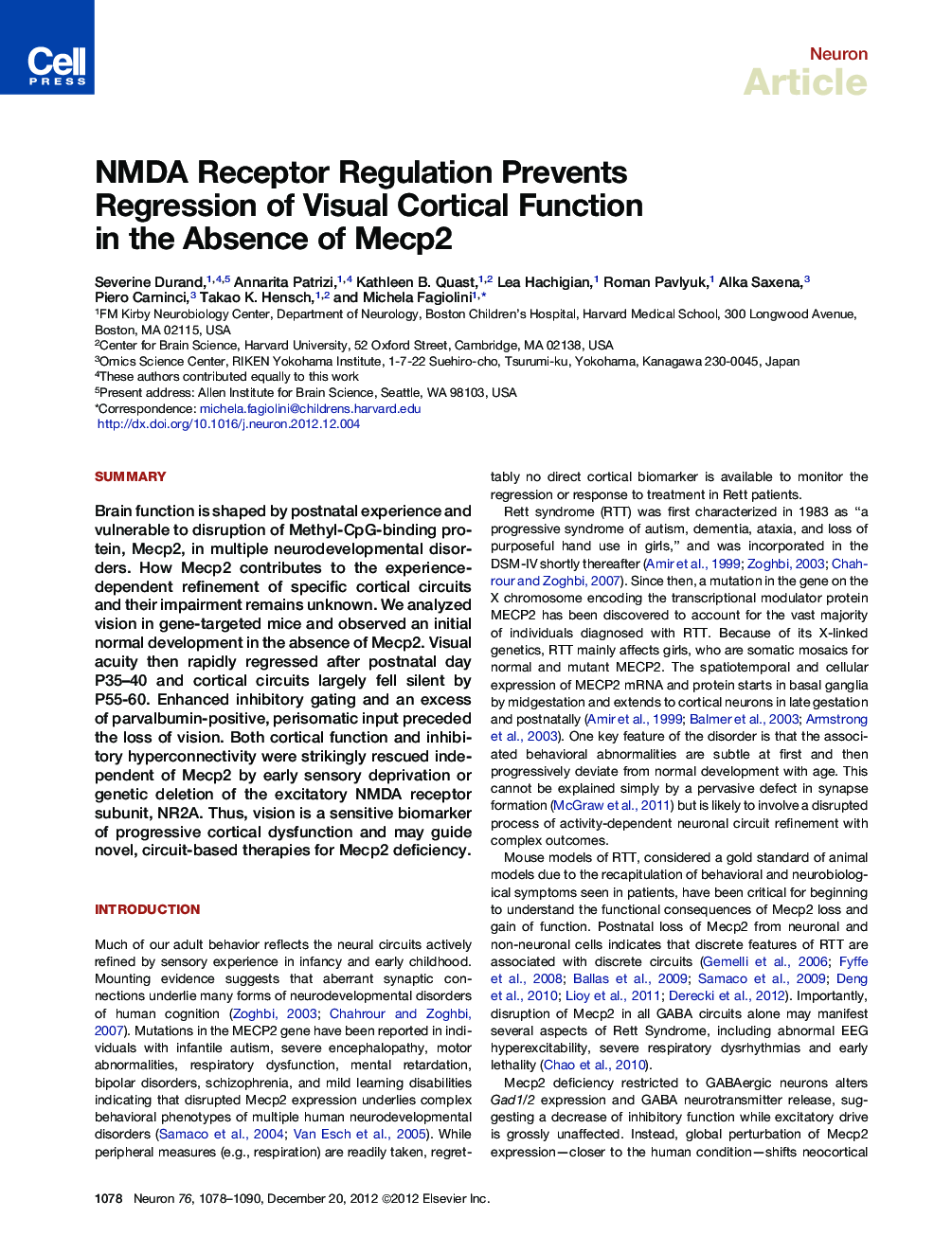| Article ID | Journal | Published Year | Pages | File Type |
|---|---|---|---|---|
| 4321217 | Neuron | 2012 | 13 Pages |
SummaryBrain function is shaped by postnatal experience and vulnerable to disruption of Methyl-CpG-binding protein, Mecp2, in multiple neurodevelopmental disorders. How Mecp2 contributes to the experience-dependent refinement of specific cortical circuits and their impairment remains unknown. We analyzed vision in gene-targeted mice and observed an initial normal development in the absence of Mecp2. Visual acuity then rapidly regressed after postnatal day P35–40 and cortical circuits largely fell silent by P55-60. Enhanced inhibitory gating and an excess of parvalbumin-positive, perisomatic input preceded the loss of vision. Both cortical function and inhibitory hyperconnectivity were strikingly rescued independent of Mecp2 by early sensory deprivation or genetic deletion of the excitatory NMDA receptor subunit, NR2A. Thus, vision is a sensitive biomarker of progressive cortical dysfunction and may guide novel, circuit-based therapies for Mecp2 deficiency.
► Visual acuity is a reliable biomarker of cortical regression in the absence of Mecp2 ► Hyperconnected PV circuits anticipate loss of spontaneous activity and vision ► Developmental NR2A regulation rescues PV circuits, cortical activity, and vision ► These data suggest circuit-based therapies independent of Mecp2 for RTT syndrome
